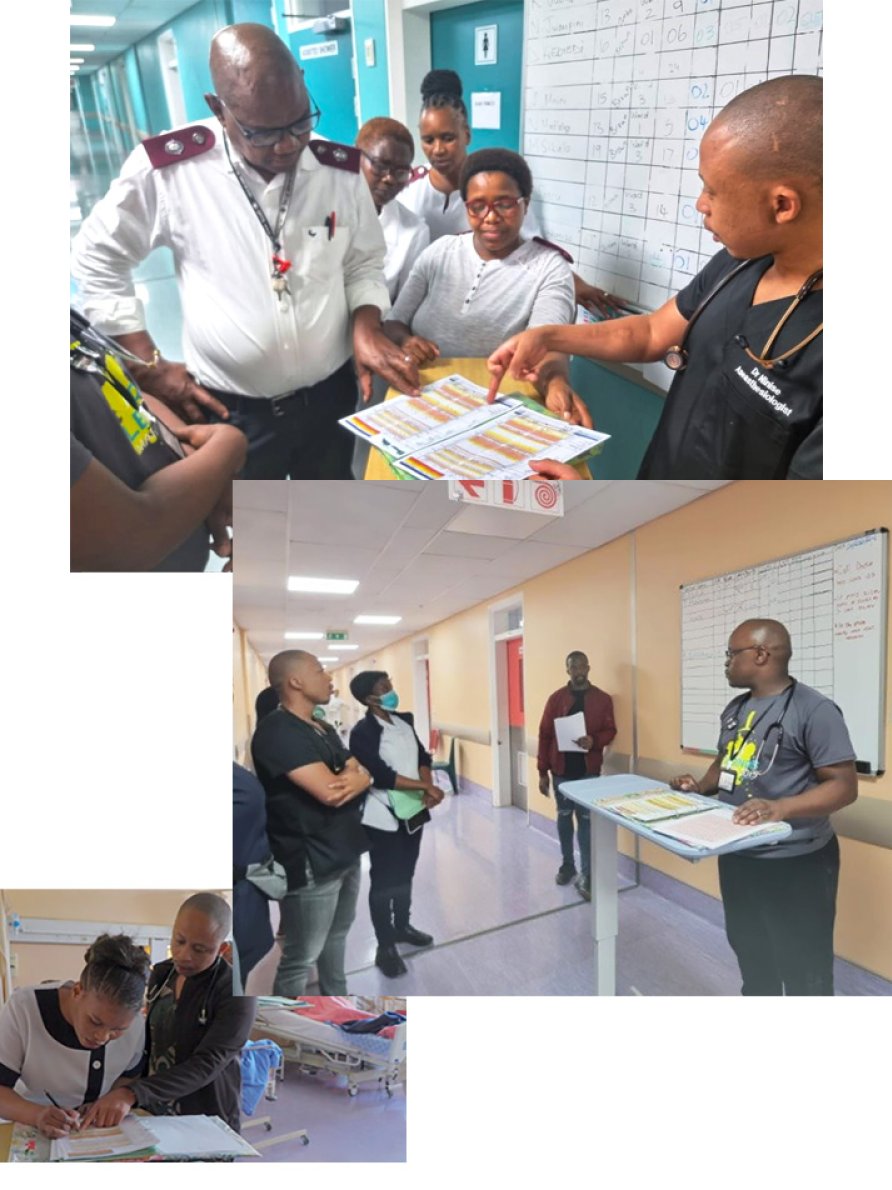
Saving Lives After Surgery
Post-Surgical Mortality: Addressing Africa's Silent Health Epidemic
Millions of people die each year from complications after surgery. Despite post-surgical mortality being the third largest cause of death across the world — more than AIDS, malaria, tuberculosis, or childbirth combined — very little funding or research goes toward solving this problem.
It's not the surgery itself that is the cause of mortality. Patients are dying because we don’t have solutions that help medical staff identify and respond to patients in distress following surgery.
IHI has a proven solution that can reach all patients in need. No new drug or device is needed, just nurses and doctors providing the right care, at the right time, for every patient after surgery.
By co-designing new patient care systems and developing new skills and tools, 7 hospital teams in 4 African countries built a new model of care that decreased deaths after surgery by 36 percent.
Our audacious goal is to scale up this new model to hundreds of large hospitals across Africa in the next five years. Partnering with researchers from University of Cape Town and an existing network of hospital practitioners across Africa, we are refining the care model to make sure it can be scaled with minimal external support. We are now seeking funding to undertake an ambitious expansion of this initiative. With further funding and support from in-country partners, we will engage over 200 hospitals in Africa to rapidly implement the model in the health systems of 20 countries. Working with country health systems and global health leaders and influencers, our audacious long-term goal is to spread this life-saving intervention across the globe.
These new game-changing models of care and scale up will save millions of lives in a neglected area of care.